SUMMARY
This is AI generated summarization, which may have errors. For context, always refer to the full article.

In junking the petitions questioning President Rodrigo Duterte’s unilateral withdrawal from the International Criminal Court (ICC), the Supreme Court said it “avoids political issues like the drug war.”
The High Court decision though, said the petitioners, glossed over the impact of the country’s ICC pullout on the fight for accountability in the thousands killed in the bloody campaign.
“The Court tries to avoid getting into political issues such as for example the drug war in general, we would rather attend to specific facts, raising specific issues in the proper way, through the proper petition the right way, the right time and the right place,” said Associate Justice Marvic Leonen during a rare press conference on Friday, June 11.
It was Chief Justice Alexander Gesmundo’s first meet the press event. Unlike in previous press briefings of a chief justice, the entire en banc was present but only as silent participants.
However, when it came to the question on its unanimous decision last March to junk the ICC petitions for being moot and academic, Gesmundo said “I would deviate with the procedure and I will allow the ponente, Justice Marvic Leonen to give you a brief answer to your question.”
Leonen said the ICC petitions “did not deal with the drug war” but with “very specific legal issues on the constitutionality” of Duterte’s unilateral pullout, which opposition senators and the Philippine Coalition for the ICC (PCICC) questioned.
“With respect to the drug war and the impact of the case on the drug war, I think you have to wait for other cases that may be pending in the lower court or the Supreme Court,” Leonen said.

What the decision says
Even though the decision was promulgated via a unanimous vote last March, there is still no full copy of the decision. Gesmundo said earlier in the press conference that the pandemic contributed to the delay in the circulation and authentication of decisions.
Leonen said that on the petition filed by opposition senators, “the Court held that it was premature.”
“The senate has a pending resolution that proposed its own action on the withdrawal but it did not table it for discussion, so on behalf of Senate petitioners, the court held that it was premature,” said Leonen.
There are currently two pending Senate resolutions, Resolutions No. 305 by Senate Minority Leader Franklin Drilon and No. 337 by Senate President Vicente “Tito” Sotto, and Senators Drilon, Panfilo Lacson, Miguel Zubiri and Richard Gordon. Both tackled whether the Senate’s concurrence was necessary to abrogate a treaty it previously concurred in, like the Rome Statute that paved the way for the Philippines’ membership to the ICC.
Leonen did not specify which resolution he was talking about, but Resolution No. 337 actually asks the Supreme Court to rule on the matter. Consequently, the Senate as a body also filed a petition questioning Duterte’s unilateral abrogation of the Visiting Forces Agreement (VFA), which is still pending.
Limiting Duterte’s power
The question to the justices was: “Both petitions were filed by senators wanting to question just where does presidential discretion end. Shouldn’t the Supreme Court answer these questions because it’s a question that the political branch is asking about the other political branch about a powerful president with the tendency to do things unilaterally?”
Leonen said: “The Court said that the power of the president to withdraw is not absolute, the president can withdraw, however if the Senate has concurrence which is conditional, such as the subsequent concurrences of the Senate on many treaties, then the president cannot just withdraw.”
Leonen also said the Court ruled that a president cannot just withdraw “when the legislature implements a treaty via a new statute.”
“In the case of the ICC, the law came first, before the treaty. And I think in the decision it is very clear that some provisions in the treaty may have amended the actual statute that was already produced,” said Leonen.
The law is the Philippine International Humanitarian Law (IHL) enacted in 2009, and the Rome Statute was ratified only in 2011 because of the political dynamics at the time. The Philippines signed the Rome Statute in 2000 under former president Joseph Estrada but it was ratified only under former president Benigno “Noynoy” Aquino III in 2011.
“We would very much want the court to release the decision already so we can study it and file the necessary motion for reconsideration, as appropriate,” said Romel Bagares, counsel for the PCICC.
Leonen said the PCICC’s petition was junked on mootness “because it was already delivered and acted upon by the ICC,” meaning Duterte’s withdrawal was already accepted by the ICC.
Duterte withdrew the Philippines from ICC as a response to the opening of the preliminary examination into the high killings in the drug war. Prosecutor Fatou Bensouda, who retires June 15, promised she would announce her next move by the end of this month.
“One thing that has not been mooted has also been very costly to many – the killings that the ICC Office of the Prosecutor is investigating. The killings continue to rage and have expanded to claim the lives of lawyers and human rights defenders,” said Bagares last March. – Rappler.com
Add a comment
How does this make you feel?

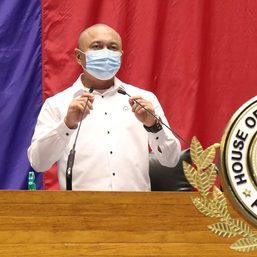
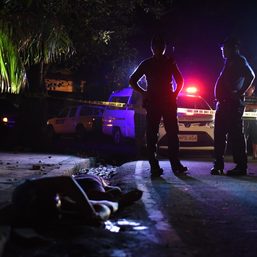
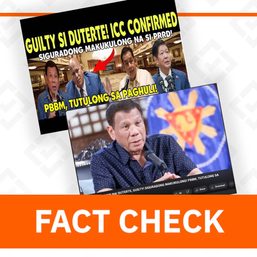
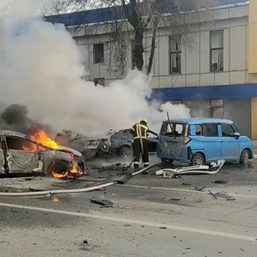

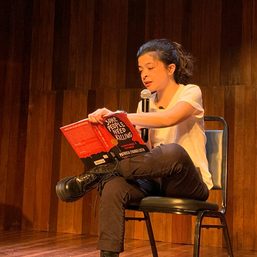
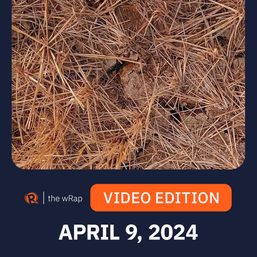
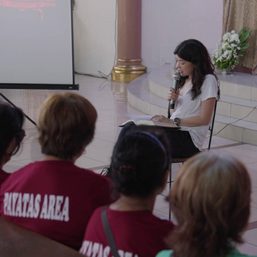
There are no comments yet. Add your comment to start the conversation.